If your bed faces any of these things, experts advise moving it for better sleep and energy
Plus, 7 dos and don'ts of optimal bed placement for better sleep, according to a Feng Shui expert
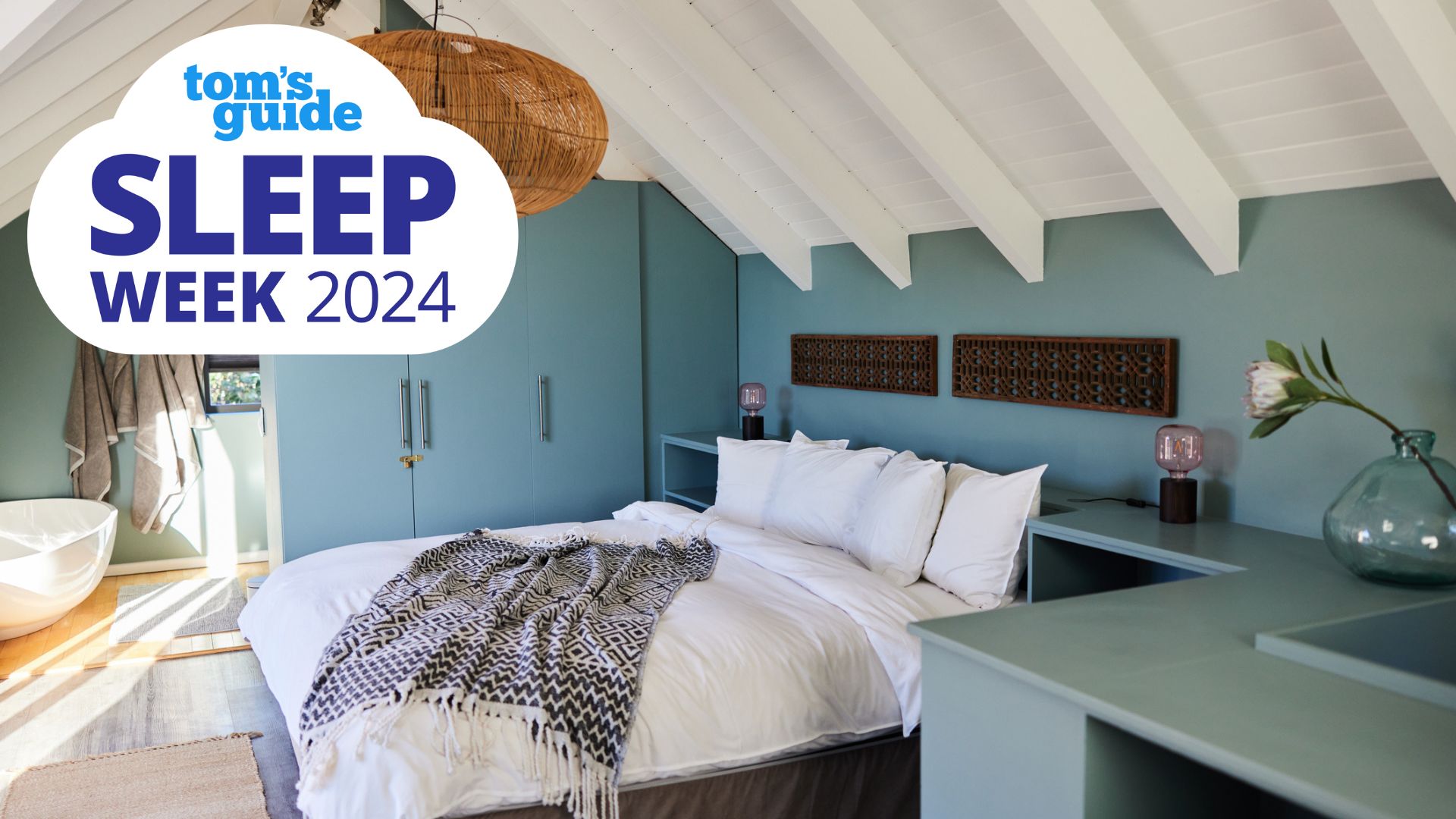
According to the ancient Eastern practice of Feng Shui, deciding where your bed should go isn’t just about choosing the most aesthetically-pleasing position in your bedroom.
And whilst there’s no doubt that choosing the best mattress for your sleep needs is a good place to start for a productive rest, in Feng Shui, everything from your bed’s proximity to the door and the direction it faces to the furniture around it should be carefully considered to encourage the flow of positive energy.
“Feng Shui is a wonderful way to enhance happiness, wellbeing and success throughout the home," says Suzanne Roynon, Feng Shui and interiors therapy expert. "In the bedroom, it’s about creating an environment that encourages life-enhancing, quality sleep,”
To coincide with Sleep Awareness Week 2024, we spoke to Suzanne, the author of Welcome Home, How Stuff Makes or Breaks your Relationship , to find out which is the best placement for quality sleep — and which is the worst.
Nectar Mattress: up to 40% off at Nectar Sleep
During Sleep Awareness Week, you can save up to 40% on memory foam and hybrid mattresses at Nectar Sleep. We rate the Original Nectar Memory Foam as one of the best memory foam mattresses for most sleepers with a smaller budget seeking a breathable all-foam bed to relieve aches and pains. A queen is now reduced to $649 in the US and £600 for a double with a free bedding bundle in the UK. You'll also get a lifetime warranty and year's sleep trial.
Where should you position your bed for better sleep?
So where should you put your bed for optimum rest? According to Suzanne, this is known as ‘the command position’. “This means having a direct or peripheral view of the doorway, ensuring anyone in the bed will notice the door opening because psychologically, this increases your sense of security while you sleep,” she explains.
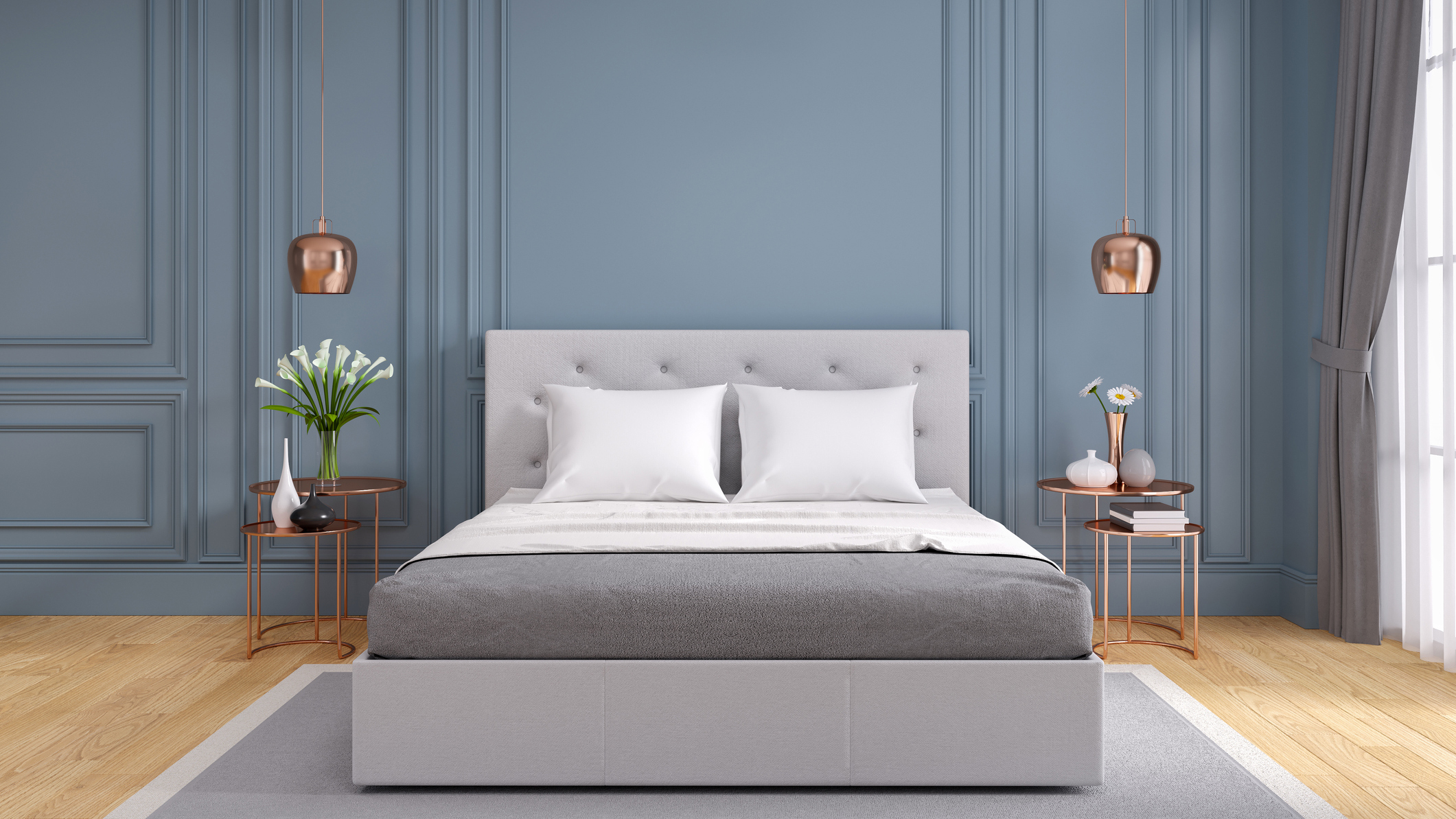
But it’s not just the physical layout of the room that matters. “Traditional Feng Shui is based on the unique requirements of the sleeper and their specific circumstances and desires, rather than generalised advice to sleep with the head pointing in one particular geographical direction,” says Suzanne.
So a good rule of thumb is to place a bed against a solid wall, helping to encourage feelings of comfort and safety while you sleep.
Sign up to get the BEST of Tom's Guide direct to your inbox.
Get instant access to breaking news, the hottest reviews, great deals and helpful tips.
7 common Feng Shui bedroom mistakes
When your wake/sleep cycle is off or you can’t seem to sleep through the night, Suzanne reveals it could be down to these four things:
1. Your bed is directly opposite the door
When your bed is placed directly opposite the door, this is known as the ‘corpse’ or ‘coffin’ position. Essentially, if the foot of the bed’s directly in line with the main door into the room, it can leave the sleeper feeling drained or exhausted. If you have no other option, place a piece of furniture or circular rug between the foot of the bed and the door to offset any negative energy.
2. Your bed is under a sloping ceiling
If your bed is placed under a slanted or an angled ceiling, it can lead to a sense of downward pressure on the head and body. So it’s best to position your bed and the bedhead or headboard in the highest part of the room.
3. Your bed is under exposed beams
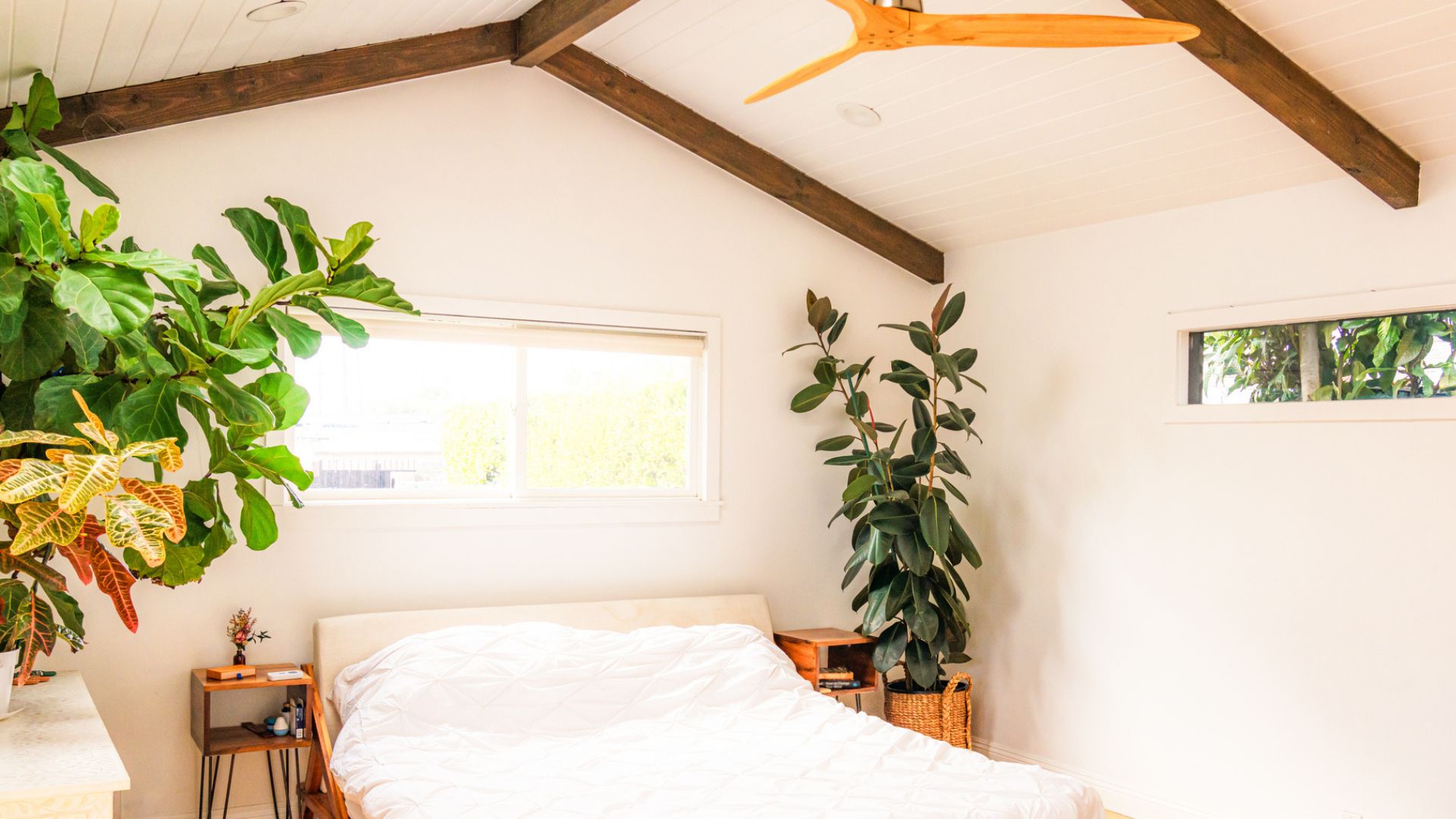
As charming as exposed beams might be, they are not conducive to quality sleep. When overhead beams cross the bed, to Feng Shui, this may cause pain or reduced function along the corresponding area of the body. Position your bed away from beams wherever possible, or arrange the bed so you’re sleeping between the beams rather than under them.
4. There are shelves above your bed
“Anything hanging above the head of your bed, like shelves, cupboard, mirrors or heavy artwork, exerts downward energy on the head, neck and shoulders” explains Suzanne, “In Feng Shui this may cause insomnia, stress, headaches and muscle pain. So try removing anything that’s hanging directly over the head of the bed to create space in that area.
5. Your headboard isn’t against a solid wall
Firstly, always choose a strong, comfortable headboard. Suzanne says this provides a sense of stability and invulnerability during sleep. Feng Shui encourages wooden or upholstered, padded headboards for this purpose.
Metal should be avoided because it has a ‘cutting energy’ which is less than ideal for sleeping. Always place your headboard against a solid wall, this encourages feelings of safety and relaxation.
6. Your bedroom is also your workspace
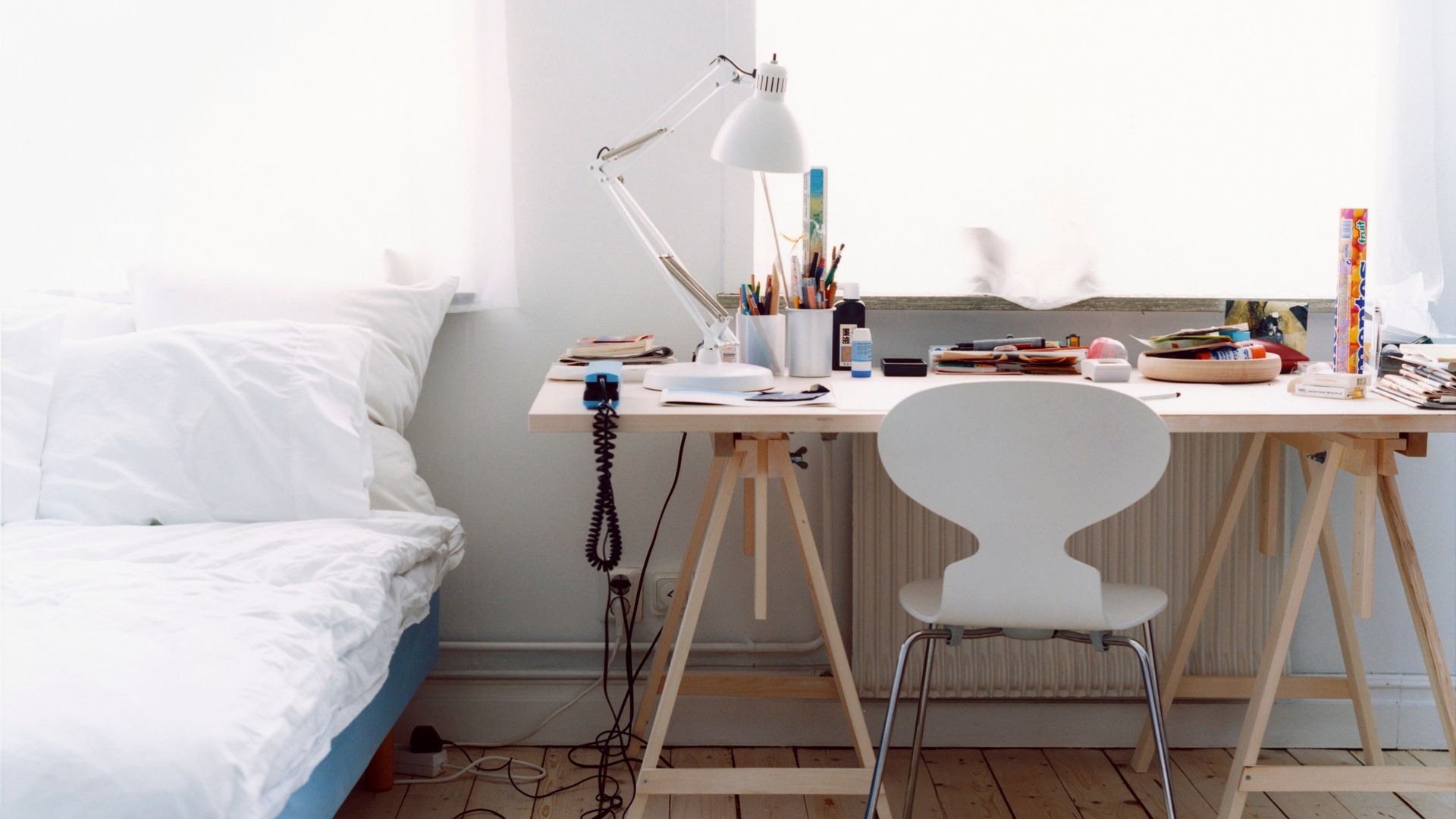
According to workplace furniture suppliers who work with Feng Shui expert Inbaal Honigman, having electronic devices in the bedroom creates disruptive energy, making it difficult to wind down. Since workspaces benefit from a dynamic, creative and focused atmosphere, they are incompatible with the relaxing energy of a bedroom– so setting up your workspace where you sleep could result in a slower, lethargic work pace.
7. Your back is to the door
In order for the subconscious mind to feel sufficiently relaxed to allow the body to drift into quality sleep, it needs to feel safe and secure. “If a person sleeps with their back to a door, or they can’t see the door from the bed, they may feel vulnerable and as a result, it’s much more difficult to achieve healthy and restorative sleep,” explains Suzanne.
7 Feng Shui bed placement dos and don'ts
Thinking of incorporating Feng shui in your bedroom? Here’s the 7 key do’s and don’ts:
Do choose a strong, supportive headboard made from upholstered wood rather than metal.
Don’t hang shelves or mirrors above your bed.
Do place your headboard against a solid wall.
Don’t use your bedroom as your workspace if you can avoid it.
Do place your bed in the ‘command’ position that allows you to see the door opening, so you don’t have your back to the door.
Don’t place the foot of your bed directly in line with the door however – this is the ‘coffin’ position.
Do avoid placing your bed directly under beams, and place your headboard against the highest wall in the room, particularly if the ceiling’s slanted.
How to create perfect bed placement in a small space
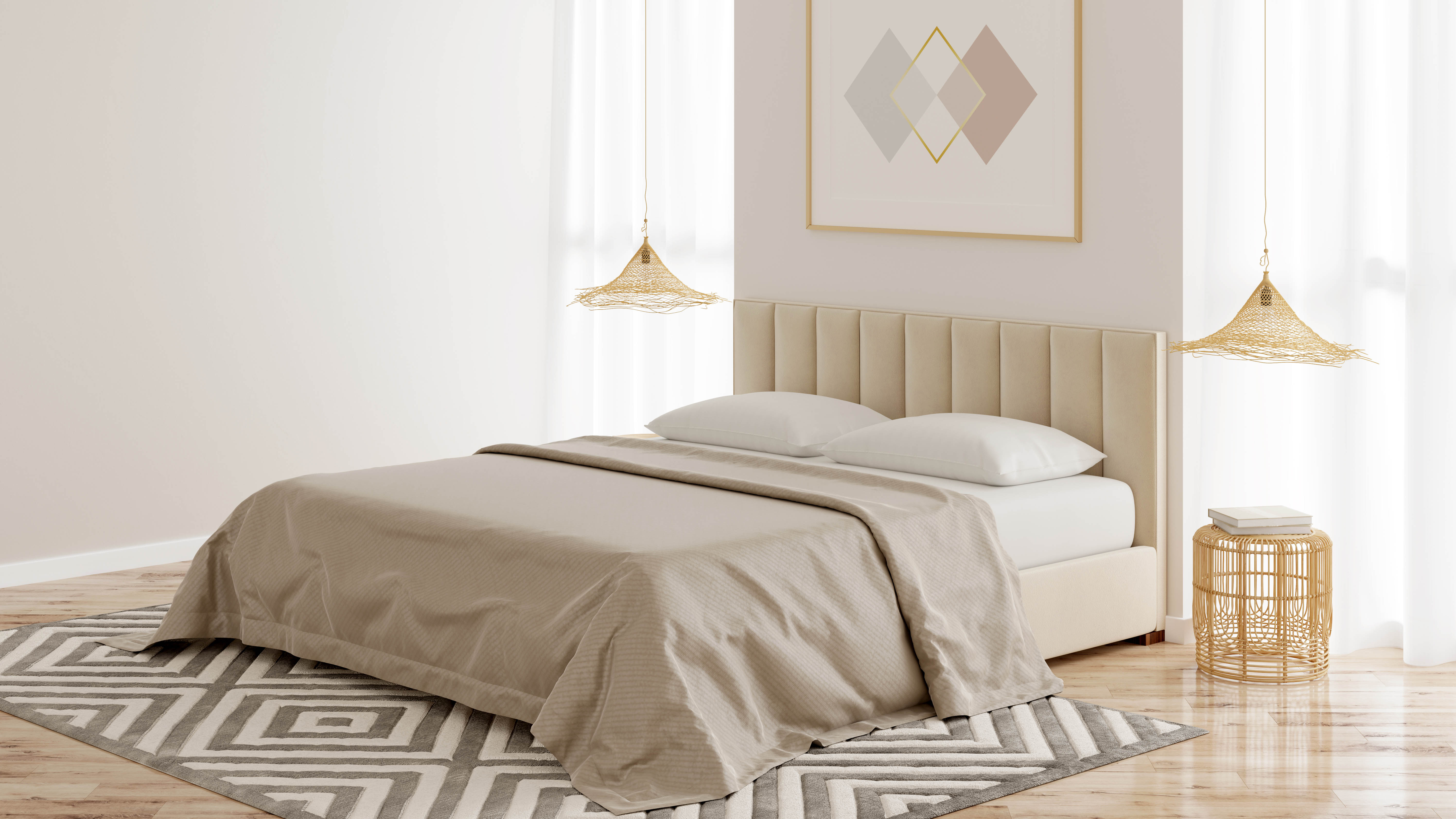
We’ve talked about the perfect bed placement, but what if you’re limited on space? “In smaller spaces, aim for the command position for the bed,” says Suzanne, “If a couple are sharing a bed, do your best to allow access for each person on either side, because placing one side against a wall means the energy in the relationship will be unbalanced.
Be careful with mirror placement – in Feng Shui, if someone can see themselves reflected in a mirror while they are sitting or lying down in bed, it can be unnerving and disrupt quality sleep. Avoid mirrored wardrobes which reflect the bed too.”

Bethan is a freelance journalist, brand consultant and copywriter, specialising in beauty, fashion, wellbeing, and health. She has over 17 years' experience working across print and digital platforms on national weekly, monthly and bi-monthly magazines, including Stylist online, Refinery29, Elle Australia, Grazia Australia, OK!, The Sunday Mirror, The Metro, Stella and Telegraph online, and more. Bethan has a keen interest in sleep and, crucially, how she somehow can get more of it.


